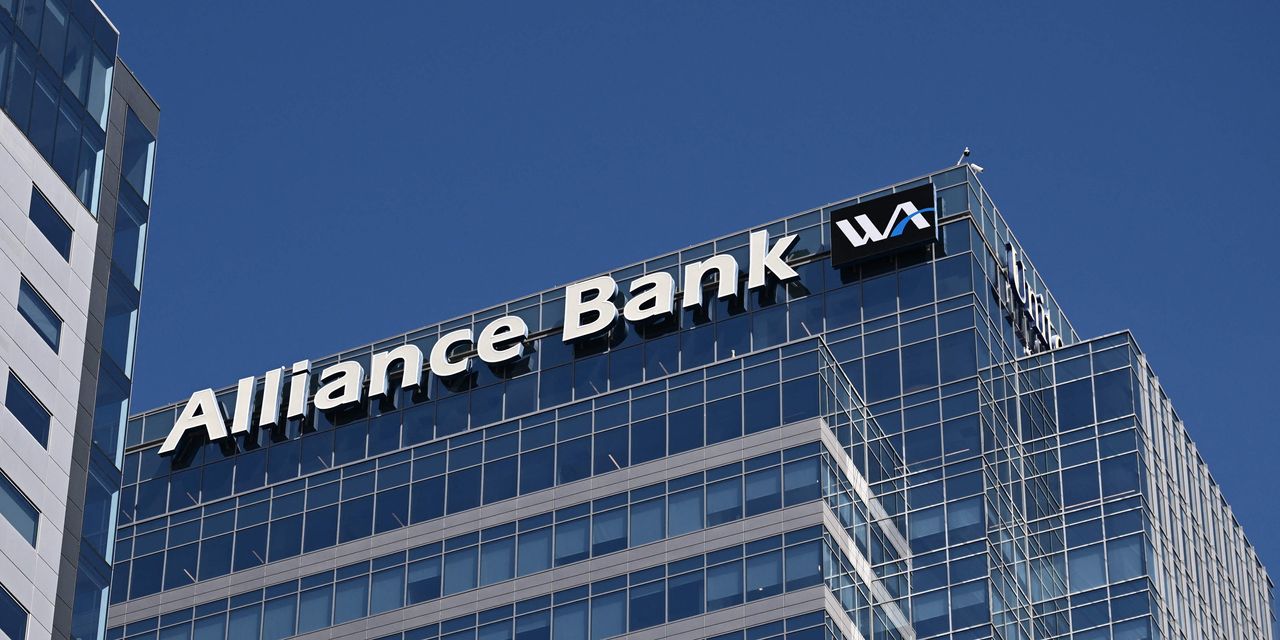Western Alliance Bancorp. led a rebound in regional-bank stocks Wednesday after an analyst said the recent selloff on the heels of the distress sale of First Republic Bank to JPMorgan Chase & Co. was “irrational” given hard numbers from the bank on its relative stability.
Regional-bank stocks fell back from higher levels but mostly moved into positive territory after the U.S. Federal Reserve lifted interest rates by a quarter-point, as expected.
Western Alliance’s
WAL,
stock rose 1.6%, while PacWest Bancorp’s
PACW,
moved up by 3.4%.
The KBW Nasdaq Bank Index
BKX,
moved up by 0.5%, the Financial Select Sector SPDR exchange-traded fund
XLF,
was flat and the SPDR S&P Regional Banking ETF
KRE,
was up about 1.8%.
Prosperity Bancshares Inc.
PB,
was up 4.6%, Metropolitan Bank Holding Corp.
MCB,
was up 5.9% and KeyCorp
KEY,
was moving higher by 1%.
Hovde Group analyst Ben Gerlinger reiterated a high-conviction outperform rating for Western Alliance and said he spoke to management at the bank during Tuesday’s selloff, when the stock was posting a double-digit percentage decline.
“In the middle of yesterday’s irrational bank trading, we had a brief conversation with management — ultimately coming away feeling very comfortable with our … rating,” Gerlinger said. “While the bank space likely faces legitimate concerns regarding future profitability, we believe [Western Alliance’s] current and estimated future return metrics to warrant a dramatic multiple expansion from current levels.”
Western Alliance’s first-quarter results and balance-sheet update were better than feared, and the bank’s brief update on Tuesday “gives us solace that not only will [Western Alliance] weather the current storm, but is likely better positioned than most peers,” Gerlinger said.
KBW analyst Christopher McGratty said he received queries from clients wondering about the weakness in bank stocks despite the First Republic acquisition, which was proclaimed as a way to stabilize the sector.
“Investors are clearly focusing on the negatives again, with many bank stocks trading more on deteriorating sentiment than deteriorating fundamentals,” McGratty said. “This includes the absence of a blanket deposit guarantee, commercial real estate credit risk, contagion risk following comments on the [JPMorgan/First Republic] call about whether this crisis was fully over.”
Raymond James analysts noted that PacWest’s first-quarter operating earnings of 66 cents a share beat the consensus estimate of 61 cents a share. The bank published earnings on April 26.
“The beat was driven by higher fee income, lower operating expenses, and a lower provision expense, partially offset by lower net interest income,” Raymond James analysts said.
The stock has been hard hit in the wake of Silicon Valley Bank’s collapse in March.
Before Wednesday’s trades, PacWest’s stock had fallen 55.1% in 2023, compared with a 21% drop by the KBW Nasdaq Bank Index.
Also read: JPMorgan Chase deal for First Republic will add to earnings while calming regional-bank jitters: analysts
Read the full article here




